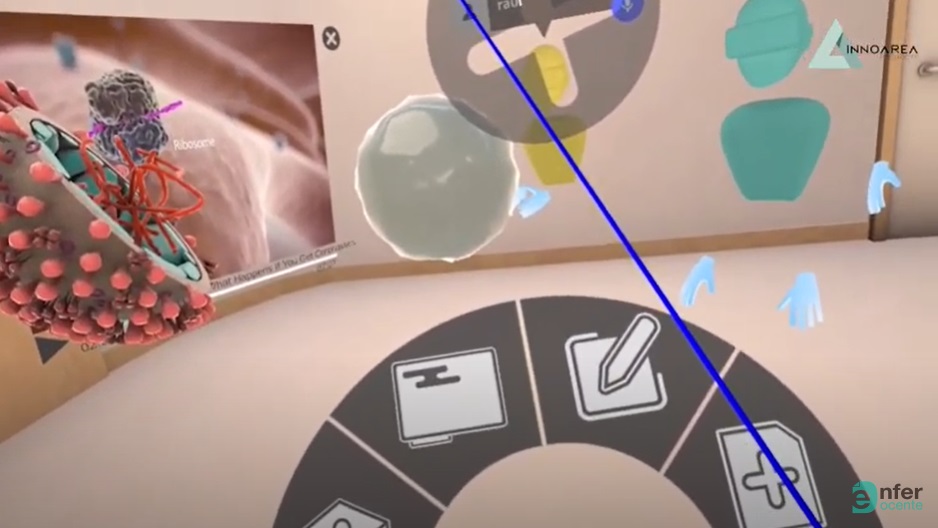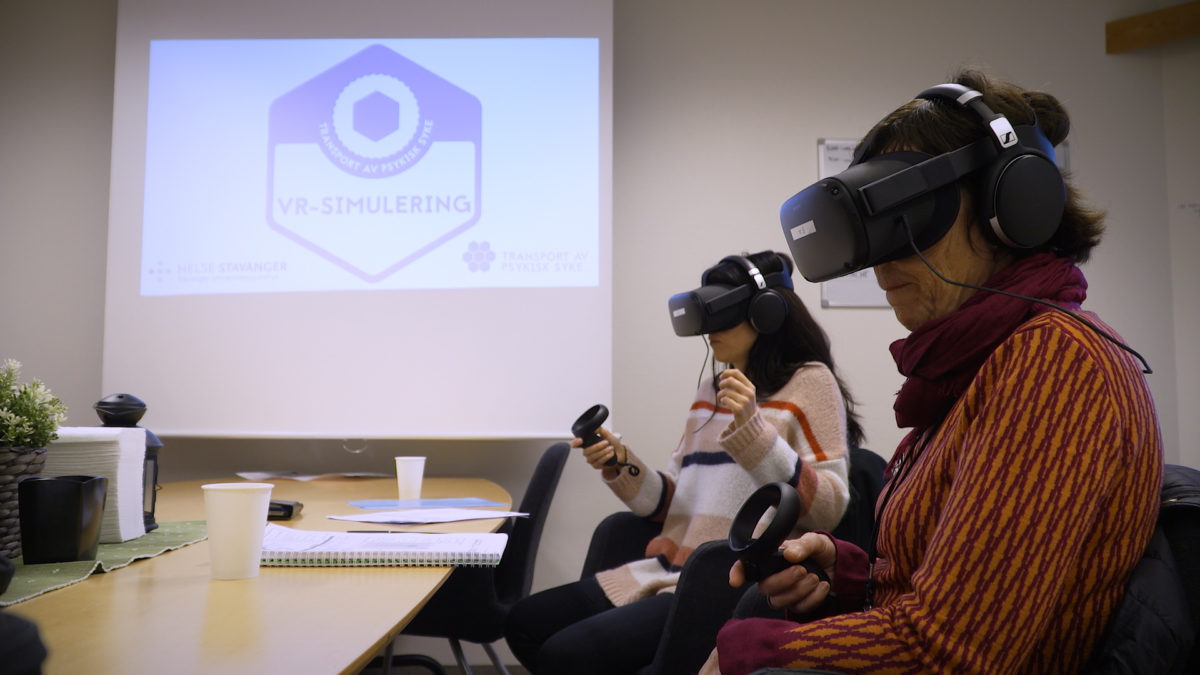As a nurse and university senior lecturer, the Head of the E-learning and New Technologies department (SENT) at The Catholic University of Valencia “San Vicente Mártir” (UCV), Dr. David Fernández, has explained to his students, through virtual reality (VR), aspects concerning COVID-19.
Dr. Fernández has answered all the questions received by participants on his twitter account @enferdocente. He has visually explained the structure of the virus, how it spreads, and how it reproduces within our organism until it reaches the alveoli in the respiratory system.
“The problem with coronavirus is that it has a high affinity for the ACE-2 receptors that are found in the membranes of lung cells,” he says.
According to Dr. Fernández, VR offers specific benefits:
“It allows the use of three-dimensional objects so students can see, experience and understand in a graphic way what is being explained. Moreover, it facilitates independent learning and it ingrates different teaching methodologies, like escape rooms, through which students can play and learn at the same time.”
UCV is a partner university of the 360ViSi Erasmus+ project team and cooperates in this particular case with a Spanish immersive tech expert company, Innoarea, to increase the understanding of the COVID-19 and how the virus affects lung cells. Innoarea have organised a virtual environment, Innorooms, a collaborative VR tool, whereDr. Fernández has visually explained the structure of the virus, how it spreads, and how it reproduces within our organism until it reaches the alveoli in the respiratory system.
The collaborative VR-tool allows several people to meet in the same virtual space, and which is particularly oriented to teaching and education. It offers the possibility to share experiences and knowledge with others, regardless of where they are, that way, students and lecturers are able to communicate through avatars if it is not feasible to do it physically. The meeting was followed on streaming on YouTube.



